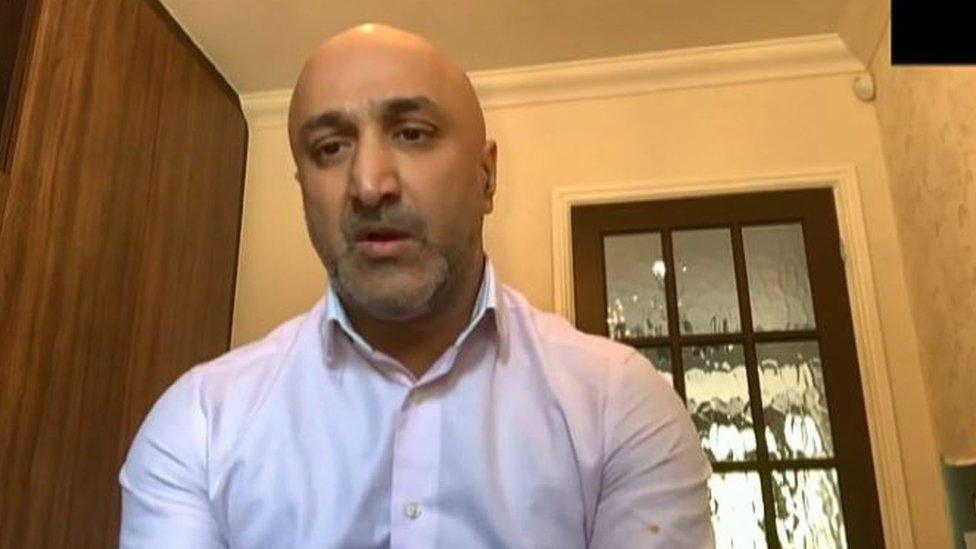Coronavirus: Care homes cause concern for families
- Published
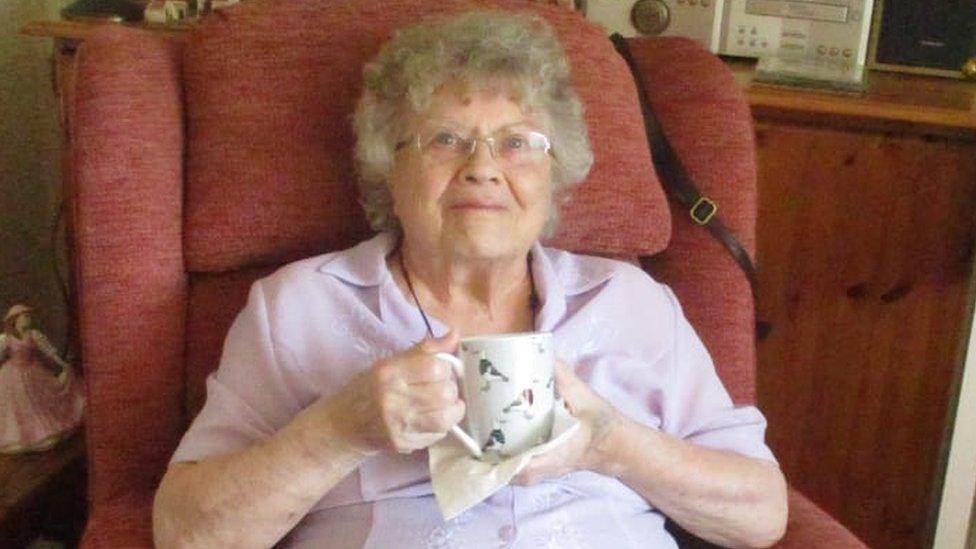
Edna Summerfield's family do not know whether they can hold a funeral for her
"I feel people in care homes are being neglected. People are coming to the end of their lives and being put at risk."
That is the fear of Sylvia Summerfield, whose mother-in-law, Edna, 94, died with coronavirus last week.
Her family believe she contracted it at her care home in Birmingham before she went into hospital on 7 April.
"How many more elderly have got to die in care homes, infected by staff who don't know they have the virus?" she said.
"My mother-in-law didn't deserve the death she had."
Edna had initially tested negative after being taken into Queen Elizabeth Hospital - but a later test revealed she did in fact have the virus, so they believe it was a false negative.
Her son Alan - Sylvia's husband - was able to be with her when she died on 10 April.
"We managed to talk to her on my husband's phone for a short while," she said. "All she could say was: 'I love you, I love you'."
Edna - a much-loved grandmother and great-grandmother - died peacefully in hospital, Sylvia said. Her family does not know when they can hold a funeral - or if anyone will be able to attend.
Sylvia praised the care home for shutting down as soon as possible, only allowing staff in. But she asked where they were meant to get personal protective equipment (PPE) from.
She said care staff were "doing their utmost" but desperately needed funds for the equipment.
"They haven't budgeted for all of this - where are they meant to get the money from for everything they need?" she asked.
Alan, in self-isolation at his son's house, added: "Nursing homes may have to deal with deaths on a fairly regular basis but not care homes and certainly nothing this contagious and with these volumes."
Rose Mitchell was diagnosed with coronavirus in a care home and died 24 hours later. Here her daughter Karin Pointon thanks her mum's carers
'Sense of insecurity'
Gail Grant, from Swindon, has not seen her husband Ian for three weeks.
Ian, a former dentist, has dementia and lives in a care home in Marlborough. He turned 70 earlier this month.
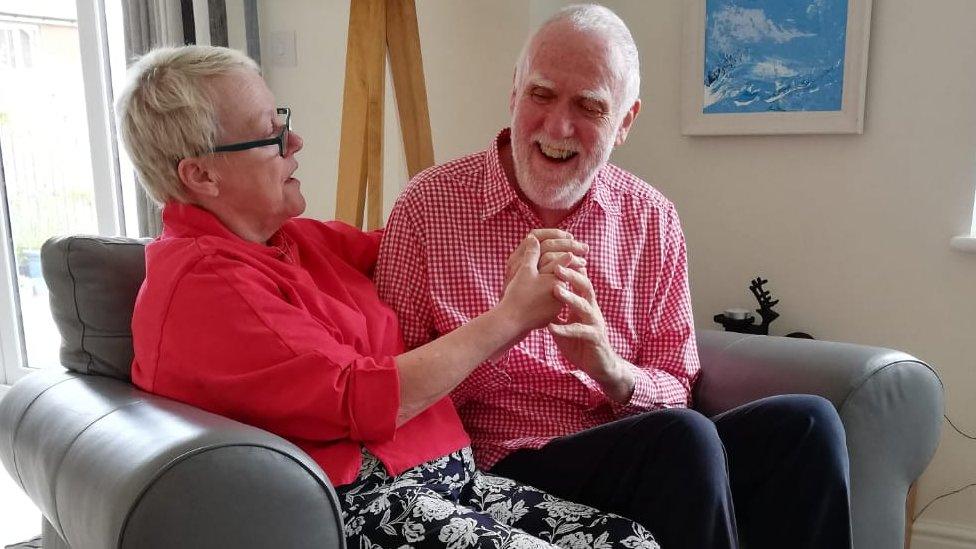
Gail Grant is worried about the virus reaching Ian's care home
"I understand why they closed to visitors but it leaves us with this sense of insecurity and worry," she said.
"Because of his cognitive level, we can't Skype or talk on the phone. He doesn't have any understanding of the situation and doesn't really know us anymore. But it's more me - I'm aware I'm not going to see him."
Dr Grant says she fears about what will happen when the virus reaches the care home.
"They say they don't have any cases at the moment at his home. But I think it's a matter of time. And when any carers go down with it, it will be a difficult situation," she says.
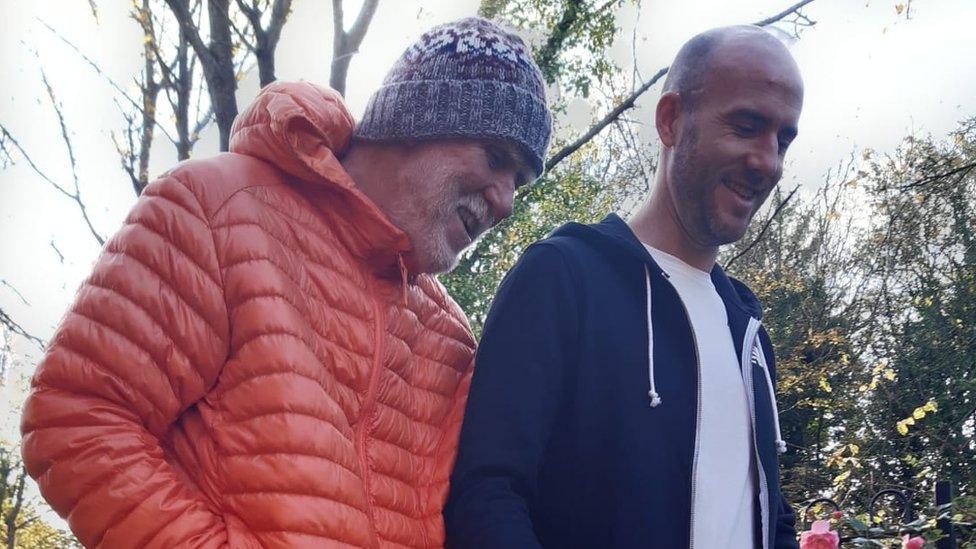
Ian Grant with his son John: His family have not been able to visit him for three weeks
She says of the official figures currently just including hospital deaths: "The idea of the government not adding care home deaths to the tally is incredibly suspicious. What right do they have to withhold information that should be in the public domain?"
It takes additional time to gather figures from thousands of separate homes and ensure the cause of death is correct, said Public Health England's medical director Yvonne Doyle. But she said the government is working towards announcing daily figures for care home deaths.
The government has also said it is following international standards in announcing deaths in hospitals first.
'It could be three more months'
Robert Compton also can't see his other half at the moment - his wife Kim works in a Doncaster care home and has been on lockdown there for three weeks.
It was decided nine members of staff, and a cook, were needed to volunteer and they shut the doors to the outside world in a bid to avoid coronavirus.
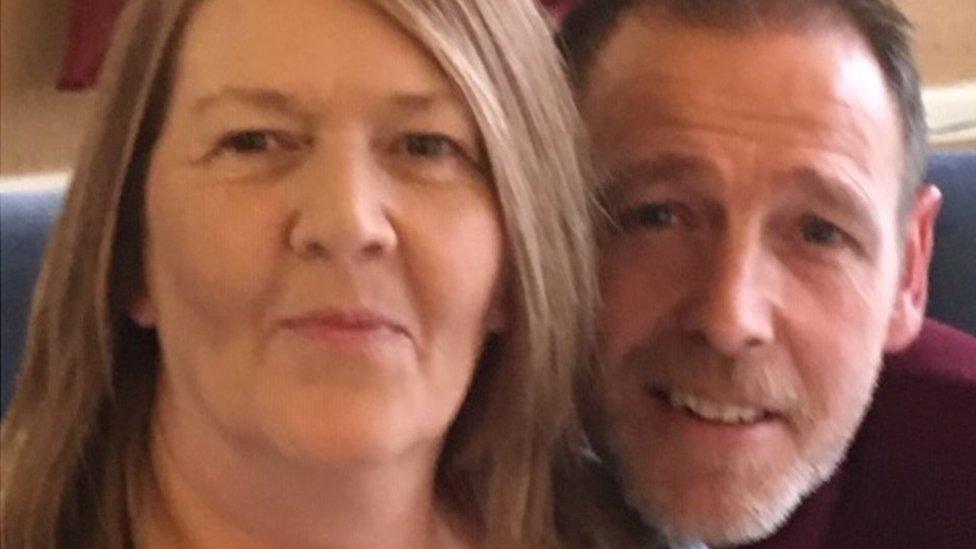
Kim Compton with husband Robert: She is among the care home workers who volunteered to go in for lockdown
"What she's done is a good thing, and the right thing," he said. "I'm happy she's safe there but I don't know how long this will last.
"They have basic PPE but with the virus not getting in, with nobody coming in or going out, they don't need it a great deal."
His mother is currently living in sheltered accommodation and he said he worries for her safety too.
"I feel like older people and those with health conditions - including those in care homes - have been forgotten about to a certain extent," he says.
"It's only in the past few days there's been a focus on the number of deaths in care homes. If it gets into a facility like that, it will just spread like wildfire."
As for when he'll see his wife again?
"I thought she'd be in there for one or two weeks, maximum. Now it could be another three weeks, or three months."
- Published14 April 2020
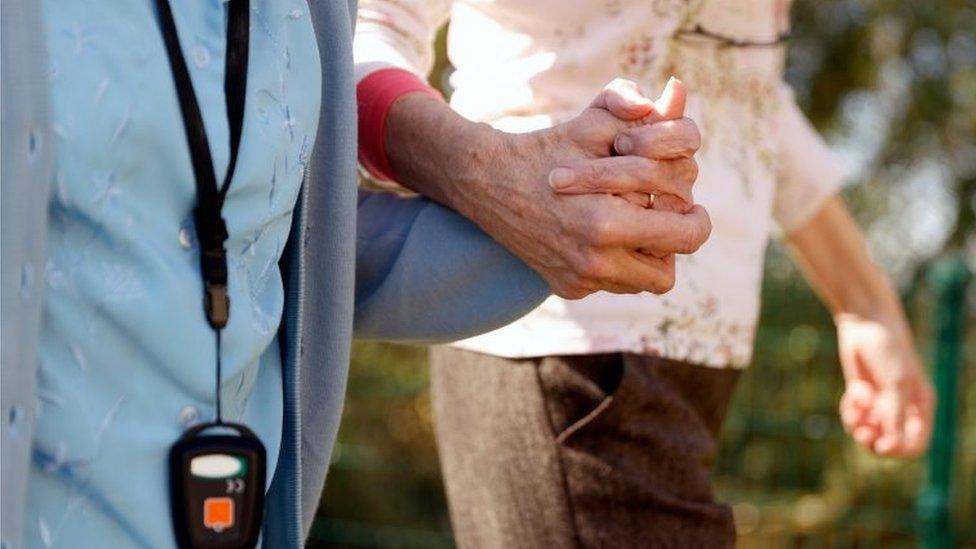
- Published14 April 2020
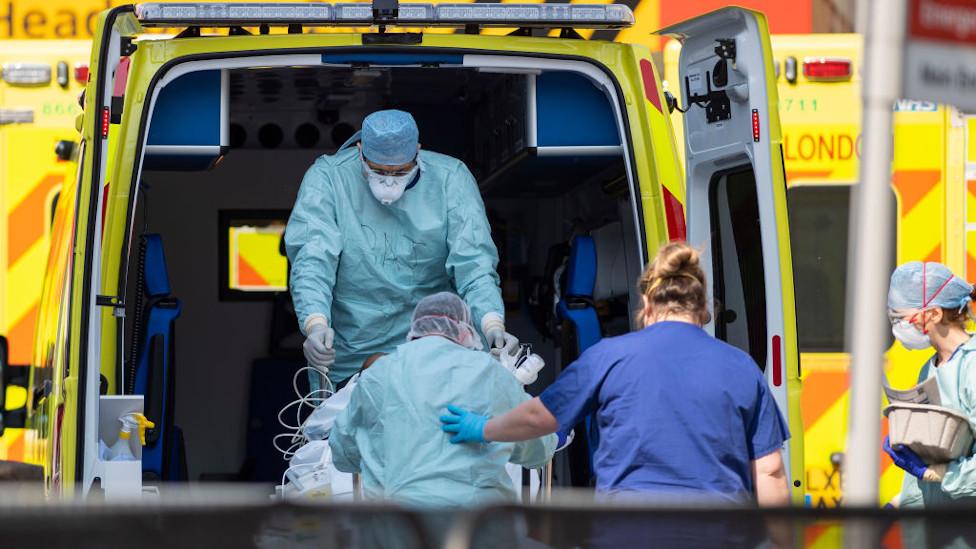
- Published13 April 2020
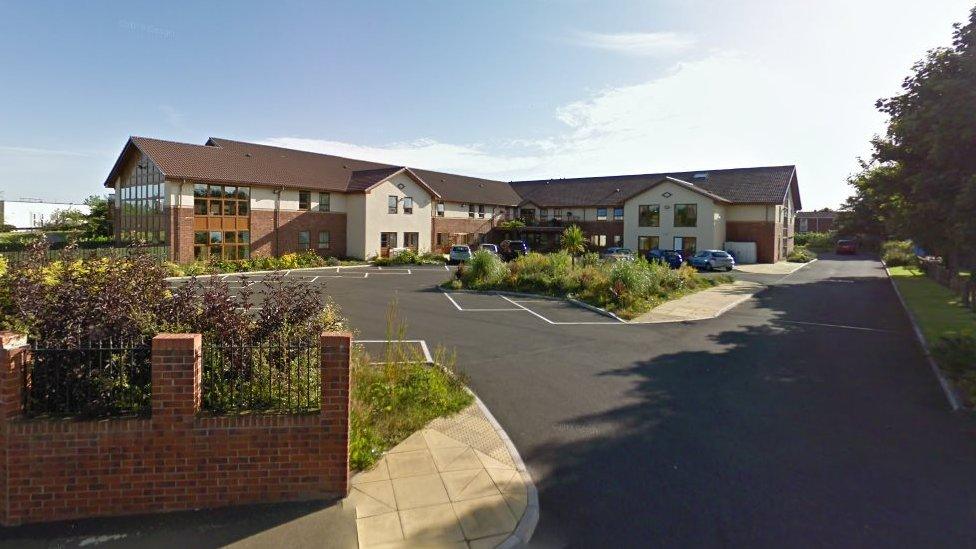
- Published9 April 2020
